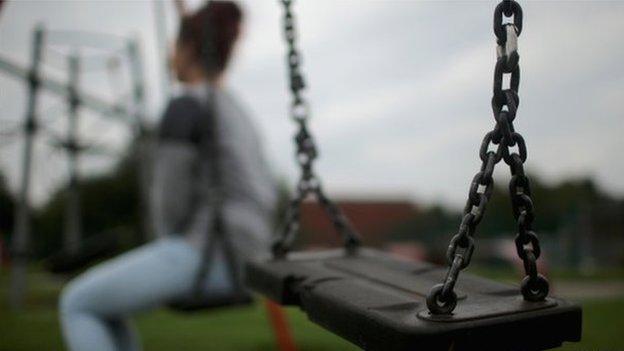Estyn: Achievement gap worry for pupils in care
- Published

Inspectors visited 17 schools and highlighted good practice for supporting children in care
Children in care still face too many barriers to doing well in school, warns a report by watchdog Estyn.
It found although results are improving, there is still a wide achievement gap between looked after children and other pupils.
Inspectors say the pupils who do best are the ones at schools with strong pastoral support, better tracking of pupils and a willingness to listen.
Ministers said the report would support their strategy, published in January.
Estyn highlights best practice at schools around Wales for how councils and other schools can learn lessons.
Inspectors are also worried that too many older teenagers who have been through the care system are not in work, education or training by the end of it.
Meilyr Rowlands, Estyn's chief inspector, said: "Nearly half (45%) of children who are looked after are not engaged in education, training or employment (Neet) or in touch with their local authority at the age of 19.
"This compares with around 5% of other children.
"This report shows that with commitment, determination and a clear strategic vision, gaps in attainment can be tackled and reduced."
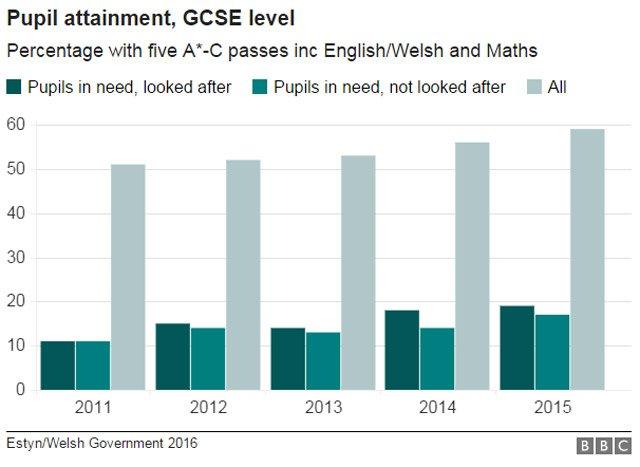
Showing improvements for teenagers taking their GCSEs but still a gap
Around 64% of the youngest children who are looked after achieved the Foundation Phase Indicator (FPI) in 2015. This is a 11% improvement on 2012.
The performance of looked after seven to 11-year-olds is also improving.
The biggest improvement is among 11 to 14-year-old looked after children, with 48% reaching the core subject indicator - 25% better than in 2011.
It is also improving at GCSE level although less than a fifth of children who are looked after leave statutory schooling with the level 2 threshold - five GCSEs at grade A*-C that includes English or Welsh and maths.

CASE STUDY: Brynteg Comprehensive School, Bridgend
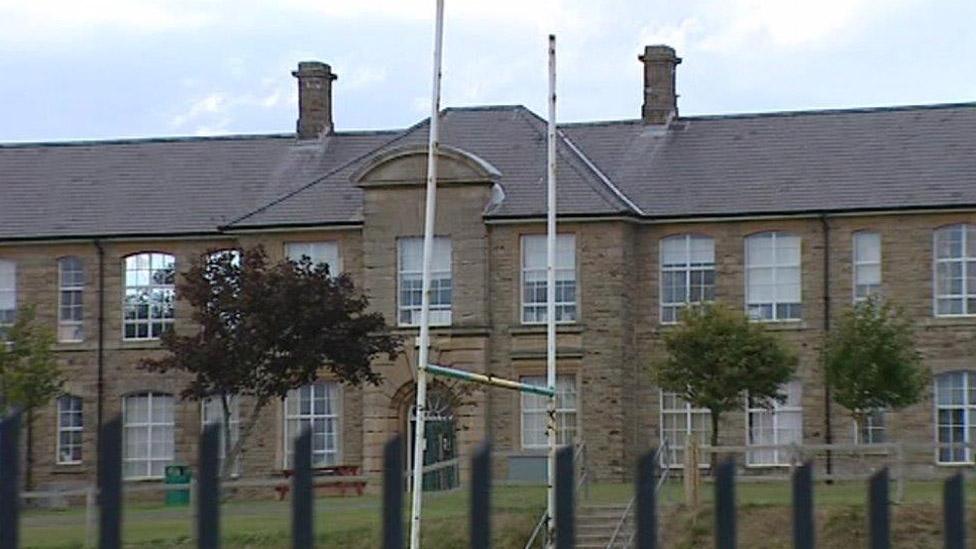
The school, one of the largest in Wales, uses pupil deprivation grant funding to provide extra tuition, mentoring and literacy and maths "boot camps," as well as after school and holiday activities for the 30 pupils who are looked after.
At 95%, the attendance of children in care or fostering is higher than the average for other pupils at Brynteg.
Many 11 to 14-year-olds achieve the expected level in core subjects while all pupils achieve the indicators at GCSE level.

Recommendations include suggesting Welsh Government measures extend beyond statutory school leaving age.
The Welsh Government welcomed the report and said it would publish its response shortly.
"Every single child in Wales - including those who are looked after - has the right to expect an excellent education," said a spokesman.
"The evidence provided in the report will support the implementation of our strategy: Raising the ambitions and educational attainment of children who are looked after in Wales, external which was published in January.
"The strategy will continue to ensure a national focus is maintained on the needs of looked after children to improve educational outcomes and help them achieve their potential."
- Published11 November 2015
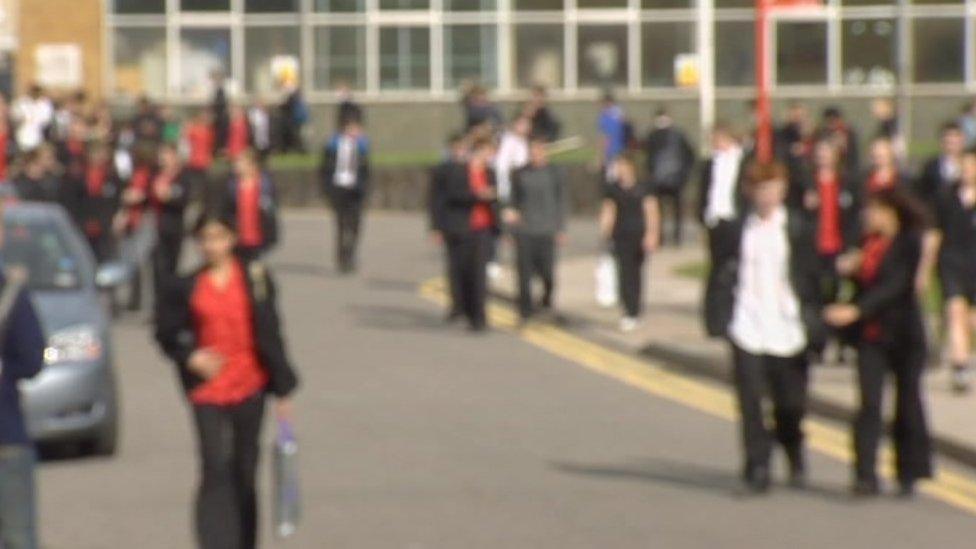
- Published29 June 2016
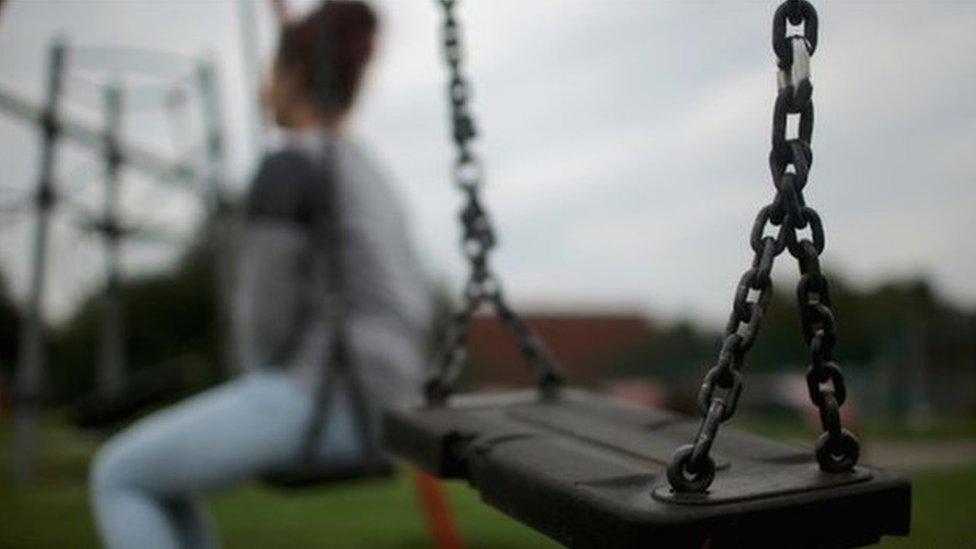
- Published30 January 2015

- Published22 August 2012

- Published14 October 2015
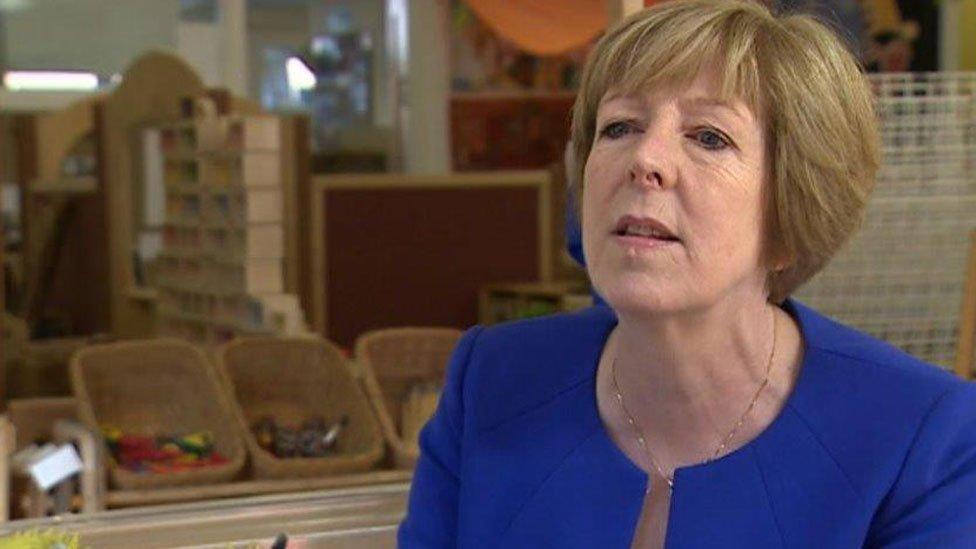
- Published15 May 2016
